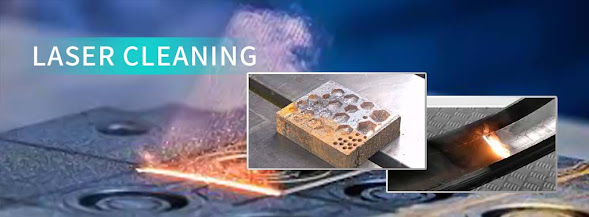How Laser Cleaning Machines Work
A laser cleaning machine is a tool that uses laser technology to remove contaminants, coatings, rust, paint, or other unwanted materials from surfaces. The process is non-contact and involves using laser light to ablate or vaporize the undesired substances, leaving a clean surface underneath. Here are some key points about laser cleaning machines:
How Laser Cleaning Machines Work:
1. Laser Ablation:
- The laser beam is directed at the surface to be cleaned.
- The energy from the laser interacts with the contaminants, causing them to vaporize or be blown away.
2. Selectivity:
- Laser cleaning is highly selective, targeting only the material to be removed without affecting the substrate.
3. No Abrasives or Chemicals:
- Unlike traditional cleaning methods, laser cleaning does not require abrasives, solvents, or chemicals.
Applications:
1. Rust and Oxide Removal:
- Effective for cleaning rust and oxides from metal surfaces.
2. Paint and Coating Removal:
- Used to remove paint, coatings, and contaminants from various surfaces.
3. Historical Artifact Restoration:
- Gentle enough for cleaning delicate historical artifacts without causing damage.
4. Industrial Equipment Maintenance:
- Suitable for cleaning machinery, molds, and equipment in industrial settings.
5. Graffiti Removal:
- Can be used to remove graffiti from surfaces.
6. Nuclear Decontamination:
- Applied in nuclear facilities for decontamination purposes.
Advantages:
1. *Precision:
- Laser cleaning allows for precise control over the cleaning process.
2. Environmentally Friendly:
- No use of chemicals or abrasive materials, making it environmentally friendly.
3. Non-Destructive:
- Does not damage the underlying substrate during the cleaning process.
4. Safety:
- Reduces exposure to hazardous materials often associated with traditional cleaning methods.
5. Automation:
- Laser cleaning machines can be integrated into automated systems for industrial applications.
Considerations:
1. Laser Power:
- The power of the laser determines its effectiveness for different applications.
2. Safety Measures:
- Adequate safety measures, including eye protection, are essential when working with laser cleaning machines.
3. Surface Sensitivity:
- Consider the sensitivity of the surface material when choosing laser parameters.
4. Waste Management:
- Proper disposal or collection of removed contaminants may be necessary, depending on the application.
Laser cleaning machines offer an efficient and precise method for surface preparation and restoration across various industries. When using these machines, it's crucial to follow safety guidelines and consider the specific requirements of the cleaning application.



Comments
Post a Comment